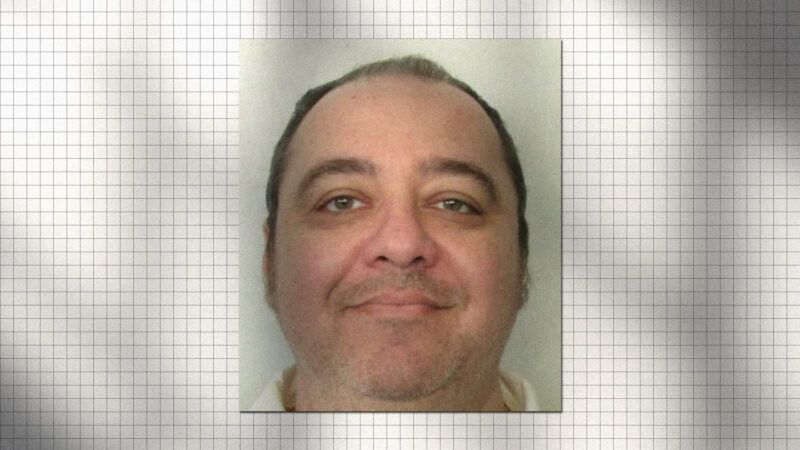'The Most Horrible Thing I've Ever Seen': Alabama Executes Inmate With Experimental Method
Kenneth Eugene Smith was likely the first person in the world to be executed by nitrogen hypoxia.

Last night, Alabama executed death row inmate Kenneth Eugene Smith in what is believed to be the first ever execution by nitrogen hypoxia. The experimental method has come under scrutiny in recent weeks, with a United Nations spokesperson going so far as to declare that the execution method "may amount to torture."
Smith, 58, was sentenced to death for the 1988 murder-for-hire killing of Elizabeth Sennett, a 45-year-old preacher's wife in Sheffield, Alabama. The state first attempted to execute Smith in November 2022 but ultimately called off the execution after prison officials failed to place an IV line to begin the lethal injection process.
Smith's first attempted execution was part of a series of botched executions carried out by Alabama, which led Gov. Kay Ivey to place a moratorium on executions in November 2022. However, she lifted the pause in February 2023, following an opaque internal investigation.
While Alabama began carrying out lethal injection executions again in July 2023, Smith had already initiated a legal battle to be executed instead by suffocation with nitrogen gas, a largely theoretical execution method approved by the state Legislature in 2018.
The state originally pushed back against Smith's request, arguing that they did not have proper facilities and procedures to kill Smith through the experimental method. But the Supreme Court disagreed, denying cert to the state's attempt to overturn an earlier ruling allowing Smith to choose execution by nitrogen hypoxia.
In an apparent attempt to save his life, Smith's lawyers have pivoted in recent months to instead argue that nitrogen hypoxia would lead to a tortuous death for Smith and that the experimental nature of the execution meant that the state could not guarantee a smooth execution.
"The evidence establishes that executing Mr. Smith by nitrogen hypoxia using the Protocol would subject him to a substantial risk of serious harm," Smith's lawyers wrote in December. "It is undisputed that depriving a human of sufficient oxygen (below normal levels but above fatal levels) can cause dire consequences short of death."
The Supreme Court rejected a last-minute attempt to halt Smith's execution earlier this month, and Smith's execution began shortly before 8 p.m. on Thursday night. According to a witness report obtained by CNN, Smith made an extended statement before he died, saying "Tonight, Alabama caused humanity to take a step backward," and adding." I'm leaving with love, peace, and light."
Witnesses reported that Smith was strapped to a gurney with a gas mask affixed to his face. Smith remained conscious for several minutes after nitrogen began flowing into the mask, and he appeared to be holding his breath for as long as possible. He "struggled against his restraints" and "shook and writhed on a gurney." Witnesses additionally reported that Smith eventually began breathing deeply, before his breathing slowed and finally stopped. He was pronounced dead at 8:25—about 15 minutes after prison officials began the flow of nitrogen.
"There was some involuntary movement and some agonal breathing, so that was all expected and is in the side effects that we've seen and researched on nitrogen hypoxia," John Hamm, the Alabama Department of Corrections Commissioner, said in a press conference Thursday night. "So nothing was out of the ordinary of what we were expecting."
While prison officials were cavalier about Smith's execution, others who witnessed his death were not so relaxed about the apparently grisly process.
The execution was "the most horrible thing I've ever seen," the Rev. Jeff Hood, Smith's spiritual adviser, told CNN. "An unbelievable evil was unleashed tonight."


Show Comments (137)